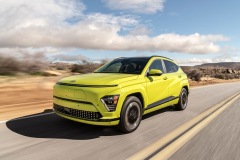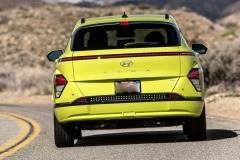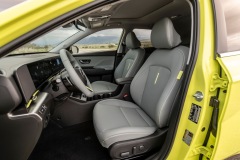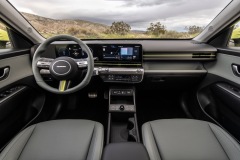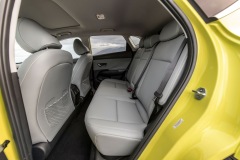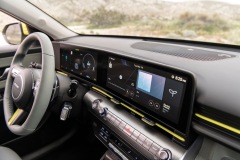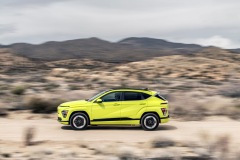News: 2024 Hyundai Kona
EV Takes Lead as Redesigned Small SUV Debuts
Hyundai introduced the all-new 2024 Kona at the New York International Auto Show this past week. Offered in three models with gasoline or electric propulsion, the updated Kona will be an important part of the growing Hyundai electrified line-up.
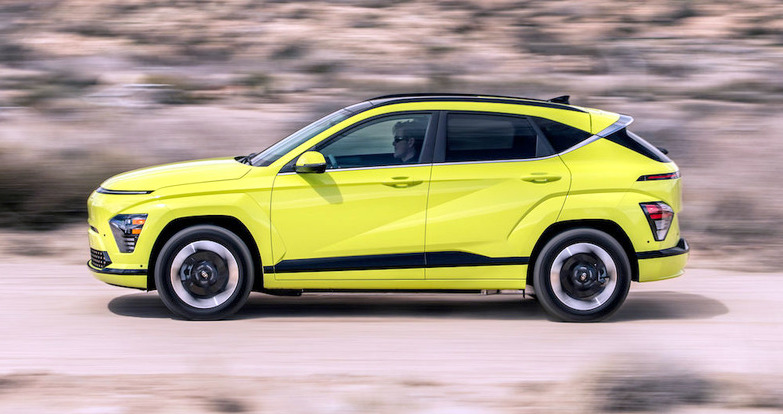
EV First Designed Exterior
Hyundai says the Kona has an “EV-centric exterior” that is also the basis for the gas-powered Kona. This design strategy is opposite of what most traditional car companies have done, which is design first for a gasoline engine, and then adapt it to an electric power plant. By starting with the Kona Electric in mind, the aerodynamics have been lowered to a 0.27 drag coefficient with active grille shutters, a sleek nose, wheel arches, lift gate and integrated rear spoiler.
Power and Powering-Up
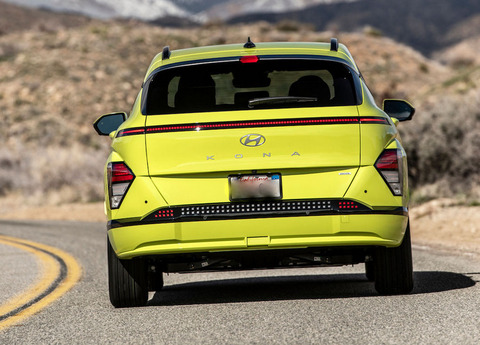
The Kona EV will feature i-Pedal driving, regenerative charging, 400-volt charging architecture that will move the car from 10% to 80% battery charge in 43 minutes on a DC fast charger, and two battery options. The 64.8 kilowatt-hour (kWh) battery has 201 horsepower (hp) and 188 pound-feet of torque (lb.-ft.), while the 48 kWh battery delivers 133 hp and 188 lb.-ft. of torque. Both motors drive the front wheels with an estimated 260 miles of driving range for the larger battery and 197 for the smaller one, based on Hyundai’s internal tests.
The Kona EV also has Vehicle-to-Load (V2L) capability where electric power can be exported and charge e-bikes, camping and outdoor equipment, or run an office while traveling. It can also power a home during a power outage.
The Kona Limited has a 2.0-liter 4-cylinder gasoline engine with 147 hp and 123 lb.-ft. of torque. The Kona N Line has a 1.6-liter turbocharged engine good for 190 hp and 185 lb.-ft. of torque.
The 2.0L is mated to a constant velocity transmission (CVT) that Hyundai calls an Intelligent Variable Transmission (IVT). The 1.6L is coupled to an 8-speed automatic. Both transmissions drive the front wheels.
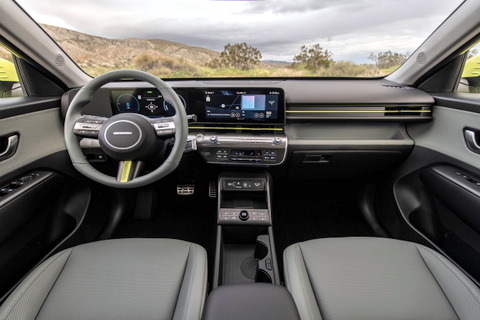
Welcoming Interior
Hyundai says the Kona has a “driver-centric, living space” interior. The key feature is a floating horizontal dash with dual 12.3-inch panoramic display screens. This screen setup on the Kona is a nice touch by Hyundai, as until recently this configuration and technology was only found on premium and luxury cars.
The front seats have been reduced in size by 30 percent for added rear leg room. Rear cargo space is 25.5 cubic feet with the rear seat upright, but grows to a very useable 63.7 cubic feet when folded flat.
Pricing and Availability
Pricing will not been announced until closer to the fall 2023 on sale date.
Observations: 2024 Hyundai Kona
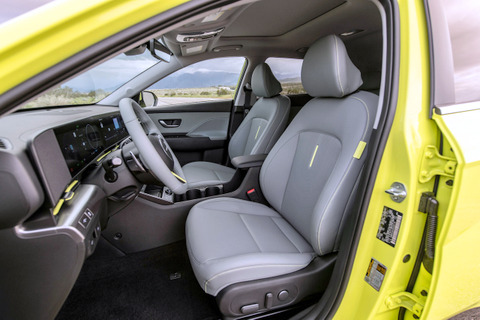
Clean Fleet Report anticipates the 2024 Kona to be a popular small SUV. The electric option could be a big selling point for the Kona, as it will most likely being priced aggressively when it debuts. We expect the internal combustion version also to be popular.
José Muñoz, president and CEO, Hyundai Motor North America, tells us: “The all-new Kona and Kona Electric continue to build upon our extremely successful first-generation model. The new Kona Electric represents the next step forward in eco-friendly mobility solutions”
When we get some serious seat time in the Kona we will report in detail on all aspects of the interior, entertainment system, driver safety systems, performance, fuel economy or all-electric driving range (depending on which model we’re in).
So you know the reference point we’ll be starting with, here’s our reviews of the previous generation Kona Electric and ICE.
Make sure to opt-in to the Clean Fleet Report newsletter (top right of page) to be notified of all new stories and vehicle reviews.
Story by John Faulkner. Photos by Hyundai.

